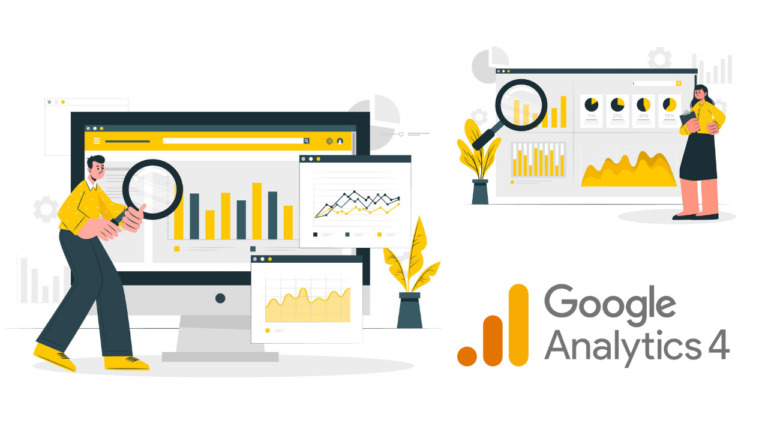
Google Analytics 4. Collecting data in 2023
Previous PostNext Post Google Analytics 4 (GA4) and the new way of collecting data in 2023 In an era driven by data, businesses are increasingly
In today’s digital era of constant connectivity, marketing has evolved into a dynamic and ever-changing service, and now more than ever it is important for marketers to navigate the digital realm responsibly. Digital sustainable marketing is a newer development in marketing, which is here to stay. But what exactly is it, and why should it matter to agencies or individuals?
In this article, we’ll explore the concept of digital sustainability in marketing. We’ll dive into why it should be considered significant, how agencies can apply sustainable practices online, the impact sustainable online marketing has, and practical steps individuals can take to form part of the eco-friendly marketing community.

Before we explore why digital sustainability matters and how marketing and sustainability go together, let’s start by defining what it actually means. Digital sustainability refers to the eco-conscious and responsible use of digital resources and platforms in marketing. It’s about ensuring that each individual and general digital footprint doesn’t impact the planet’s health more than necessary.
Digital sustainability can be applied in various practices, including green hosting, eco-friendly digital campaigns, and tracking the impact, sustainable choices have long- and short-term. These practices aim to minimize the negative environmental impact of digital marketing activities.
With the digital world growing each day, it’s vital to maintain a sustainable balance, offline and online. Making more sustainable choices in marketing practices should be a constant improvement in aligning digital practices and ecological responsibility to bring sustainability and marketing together.
Sustainable marketing isn’t just an ethical choice; it’s a necessity. And there are not just one, but many reasons why.
Reducing carbon footprints is a critical aspect of sustainable digital marketing. The digital realm consumes vast amounts of energy daily, mainly derived from fossil fuels. By adopting eco-friendly practices such as green hosting and energy-efficient technologies, sustainable digital marketing can help to minimize its environmental impact.
Meeting consumer expectations is another key pillar of this approach. Today’s consumers are increasingly conscious of environmental issues, and brands that align with their eco-friendly values are viewed as more responsible and in sync with consumer lifestyle choices.
Sustainability in every aspect of life should be viewed as a long-term strategy, not just a passing trend. Businesses that embrace sustainability both online and offline are better equipped to adapt to evolving consumer preferences and the growing sustainable movement, ensuring their long-term viability.
Lastly, sustainable digital marketing can provide a competitive advantage. It appeals to a growing segment of eco-conscious consumers, potentially increasing a business’s market share and profitability, setting them apart from their competitors and ensuring a lasting standpoint in the industry.
When thinking about marketing, digital marketing agencies come to mind. As they play such an important role in the entire marketing world, they should act as role models in the shift towards more sustainability in marketing. But how can sustainable practices be applied in agencies?
Sustainable online marketing isn’t just about reducing harm, it’s about creating a positive impact. There are various ways of how it influences not only the environment, but also consumers and businesses.
Consumer trust and competitive advantages: Studies show that increasingly eco-conscious consumers are more likely to trust brands that show a commitment to sustainability. This is based on the positive image that sustainable online marketing created and can help to form long-term loyal customer relationships.
Reduced carbon footprint: By implementing practices like green hosting and energy-efficient data centers, sustainable online marketing actively contributes to reducing the digital carbon footprint and through that playing a part in minimizing climate change. This includes lower greenhouse gas emissions and less energy waste.
Adaptability: Sustainable online marketing isn’t static, it’s able to adapt to constant change in regulations and consumer preferences. Businesses that prioritize sustainability now are better equipped to navigate uncertainties in the future.
Global impact: When businesses, agencies, and consumers unite in their commitment to sustainability, it paves the way for global change. Collectively, these seemingly small efforts can drive positive impacts on society and the environment.
Sustainability isn’t just the responsibility of businesses and marketing agencies; individuals can make a significant impact in their private lives, but also in their work lives. And it’s easier than it might seem, to implement small eco-conscious practices in day-to-day life.
As consumers and businesses get more aware of the impact sustainability has, digital agencies need to adapt to more eco-conscious and green requirements. By embracing methods like green hosting or the measurement of sustainability impact, marketing agencies can lead the charge towards a more sustainable digital future. But not only businesses should reconsider long-formed practices, individuals can also play an important role in adapting to a more sustainable digital space to help reduce carbon footprints and minimalize the effects of climate change on the planet.


Previous PostNext Post Google Analytics 4 (GA4) and the new way of collecting data in 2023 In an era driven by data, businesses are increasingly

Previous PostNext Post Communication in project management: easier said than done? Communication is the foundation of Project Management. But, what is the ‘right’ way to

Previous PostNext Post TikTok Shop: the New E-Commerce Platform for Gen Z Have you been curious over the past month about why everyone at the